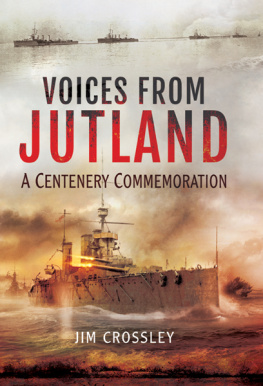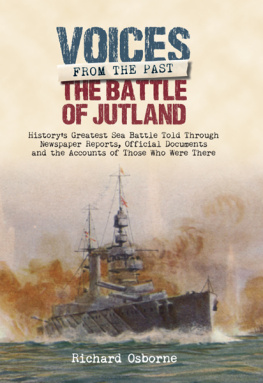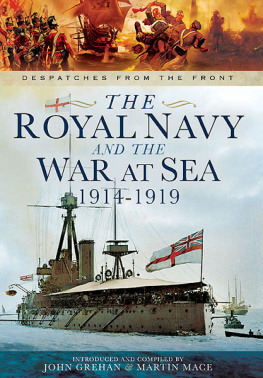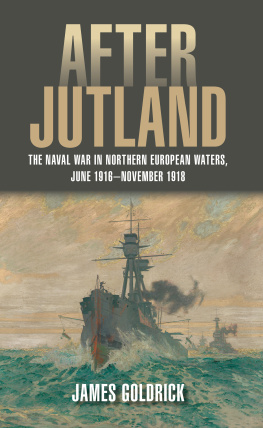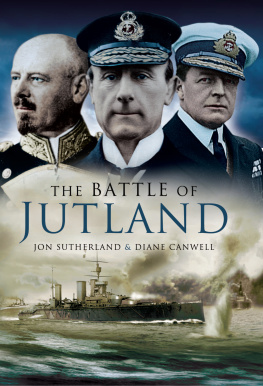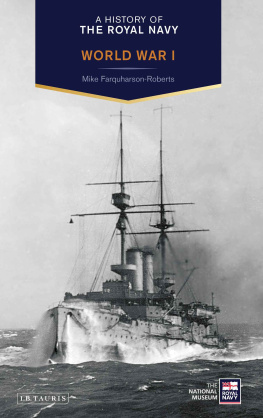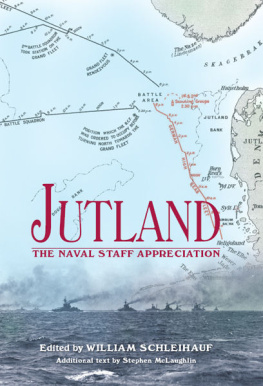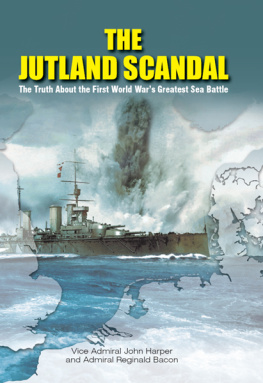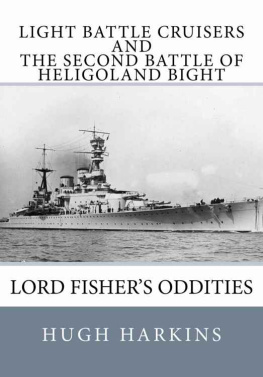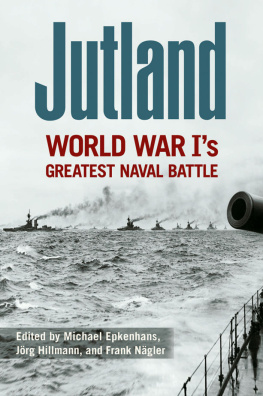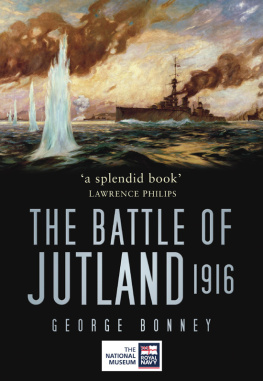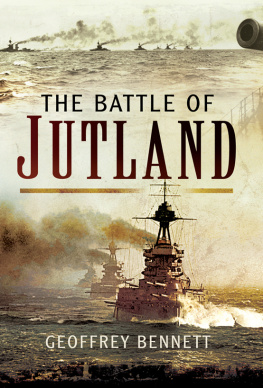This book is dedicated to my wife, Anne, who has to
tolerate my obsession with naval and military history.
First published in Great Britain in 2016 by
Pen & Sword Maritime
an imprint of
Pen & Sword Books Ltd
47 Church Street
Barnsley
South Yorkshire
S70 2AS
Copyright Jim Crossley 2016
ISBN: 978 1 47382 371 6
PDF ISBN: 978 1 47388 409 0
EPUB ISBN: 978 1 47388 408 3
PRC ISBN: 978 1 47388 407 6
The right of Jim Crossley to be identified as the Author of this Work has been asserted by him in accordance with the Copyright, Designs and Patents Act 1988.
A CIP catalogue record for this book is available from the British Library
All rights reserved. No part of this book may be reproduced or transmitted in any form or by any means, electronic or mechanical including photocopying, recording or by any information storage and retrieval system, without permission from the Publisher in writing.
Typeset in Ehrhardt by
Mac Style Ltd, Bridlington, East Yorkshire
Printed and bound in the UK by CPI Group (UK) Ltd,
Croydon, CRO 4YY
Pen & Sword Books Ltd incorporates the imprints of Pen & Sword Archaeology, Atlas, Aviation, Battleground, Discovery, Family History, History, Maritime, Military, Naval, Politics, Railways, Select, Transport, True Crime, and Fiction, Frontline Books, Leo Cooper, Praetorian Press, Seaforth Publishing and Wharncliffe.
For a complete list of Pen & Sword titles please contact
PEN & SWORD BOOKS LIMITED
47 Church Street, Barnsley, South Yorkshire, S70 2AS, England
E-mail:
Website: www.pen-and-sword.co.uk
Contents
Chapter One
The Rivals
T here is one obvious question about the Battle of Jutland Who won? Looking back now, almost a hundred years after the battle, the answer is clear. The victors were the British. They achieved exactly what they needed from Jutland, although this was not apparent at the time. Their imperative was to maintain status quo in the North Sea. The Royal Navys stranglehold on maritime traffic to and from northern Europe enabled Britain to tighten the distant blockade of Germany, denying her imports of strategic materials, food and fertiliser, eventually leading to starvation, the downfall of the Kaisers regime and total victory for the Allies. Dominance of the North Sea also ensured that Britains own maritime trade could continue with little serious interruption from enemy surface vessels. Declaring a British victory however does not imply that the British fought better than their opponents or that they did not make strategic and tactical blunders before and during the battle. Undeniably, the German High Seas Fleet showed itself superior to the British in tactics, training and in the durability of its ships. The men of the Kaisers High Seas Fleet had much to be proud of; they were the heroes, but they were not the victors.
It has often been argued that British naval strategy in the First World War was mistaken and that the absence of any Trafalgar-like naval victory was due to incompetence and a woeful lack of enterprise on the part of the Admiralty. Supporters of this view point to failures in the Dardanelles, the North Sea and the stubborn refusal to introduce a convoy system until the country was on the brink of disaster. This is not a fair assessment. A dispassionate study of the Admiralty staffs activities and priorities from 1914 onwards shows a steady and logical development of policies that eventually resulted in the collapse of the Kaisers regime. It is certainly possible to criticize the conduct of senior officers afloat and ashore, but any such criticism needs to take into account the quite amazing revolution in naval technology which had taken place during the course of their professional careers. Trained in the age when sail still dominated naval thinking and wooden ships with broadside muzzle-loading guns were still in first line service, they needed to take an enormous leap forward in their thinking to be ready for naval warfare in 1914. As we shall see, that leap proved impossible for many of them to achieve. Life in the Navy of the Victorian and Edwardian eras had done little to prepare them for it. Insofar as the Royal Navy failed to achieve the dramatic victory at sea which the nation expected in the Great War, the failure was not one of grand strategy, nor was it due to inadequate ship design; it was the result of poor execution by officers who never managed to achieve the skills or technical competence needed to command ships in a twentieth century battle environment. The underlying British strategy however, was sound and it was pursued consistently and purposefully. The dedicated officers and men in the small ships which enforced the blockade, laid and swept mines and protected merchant shipping, ultimately delivered total victory. Significantly, many of these were reserve officers or volunteer members of the Royal Naval Volunteer Reserve (RNVR) and the Royal Naval Minesweeping Reserve (RNMR) or of the Royal Naval Reserve (RNR), not naval professionals.
To understand the thinking of senior naval officers in 1914 we can follow the career of Ned Charlton, scion of an aristocratic but impecunious Roman Catholic family from Durham. Ned joined the Royal Navy in 1878 at the age of twelve. Entry into the service at that time, the time indeed when most of those who would be senior officers in 1916 joined the service, required a boy to pass a rather simple examination in mathematics (Ned prepared for this at a specialist school in Gosport) and much more importantly, to be recommended by a family friend with some influence in official circles. Through the Duchess of Norfolk, Neds mother had engineered a recommendation for her son from Admiral Sir Hastings Yelverton. In addition to this recommendation the family had to undertake to fix a sum of 50 per year on young Ned to cover essential expenses during his cadetship. Fifty pounds was a considerable sum in those days; it would have been more, for example, than the Nelson family could have afforded a little over a hundred years earlier to get young Horatio into the Navy. The requirement meant, as Admiral Sir Jacky Fisher remarked a little later, that all the commissioned officers in the Navy were drawn from the top ten of the nation; in his opinion an entirely unacceptable situation. He wanted officers selected by ability and not by social status.
Ned was sent to HMS Britannia at Dartmouth as a cadet to learn the basics of his chosen calling. The most remarkable event during his cadetship occurred when an officer entered a noisy classroom and Ned got blamed for the indiscipline. Considering himself innocent, he hurled an inkpot at the lad who had accused him, missed and hit Prince George, the future King George V, who as king, reminded him of the incident many years later.
From Britannia, Ned was sent as a midshipman to the Mediterranean aboard the new ironclad, HMS Alexandria in 1880. Alexandria (Captain Lord Walter Kerr) was a novel design of warship, fully rigged and fitted with an 8,500 horsepower engine giving her a speed under power of 14.5 knots. She had her two 11-inch and ten 10-inch guns mounted in a central battery protected by twelve inches of wrought iron armour. Her guns were muzzle loaders, firing projectiles which were made to spin by studs projecting into spiral grooves inside the stubby gun barrels. She represented a stage in the bewilderingly rapid evolution of warships from Warrior (1861), an ironclad with her heavy guns arranged for broadside bombardment, to the steel hulled turbine-engined dreadnoughts in service fifty years later.
Alexandria was based at Malta, where Ned was able to call on several aristocratic family connections, and cruised grandly around the Mediterranean eagerly challenging any ship she met in the speed at which she could hoist her yards and sails. Ned resolved to specialize not in gunnery, as was normal for an aspiring young officer, but in torpedoes, then in their infancy. His first taste of action however was to involve making use of
Next page
